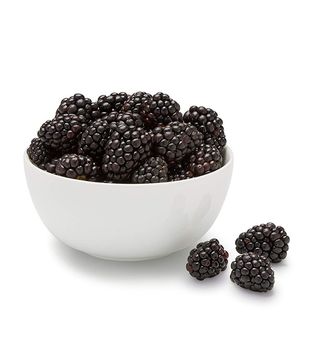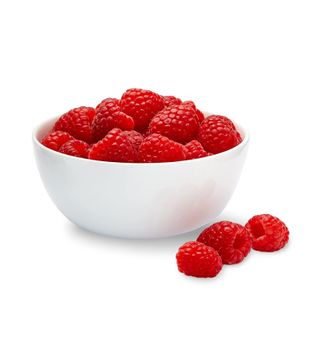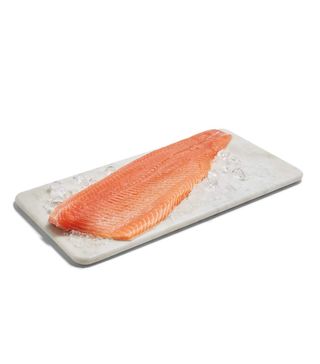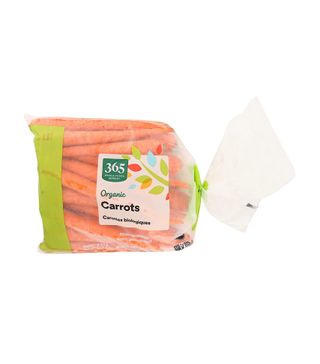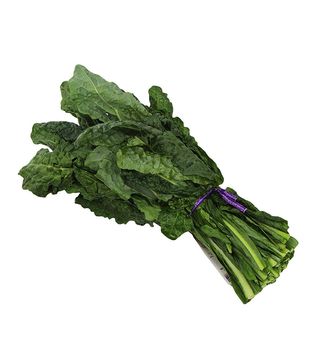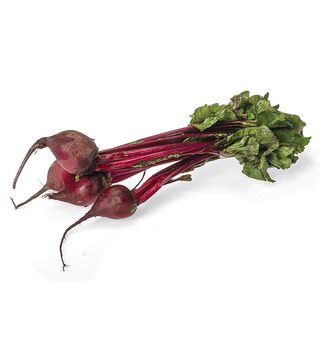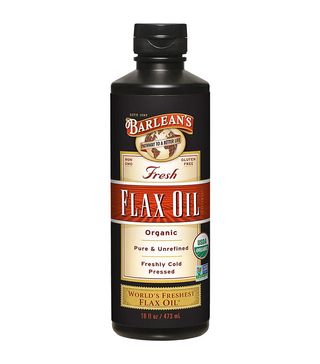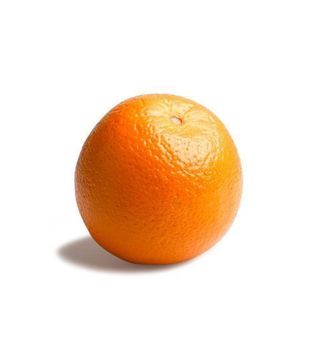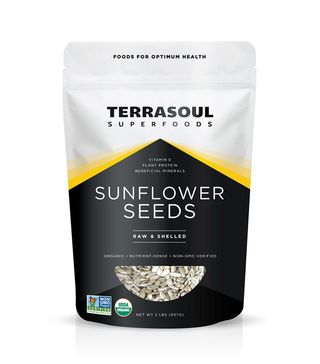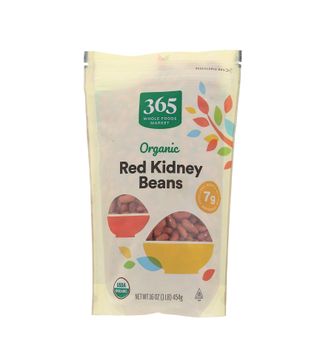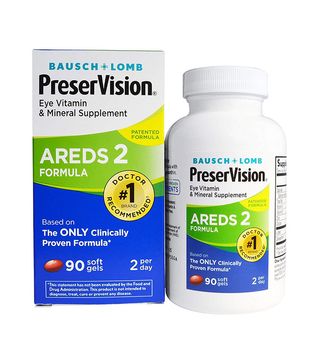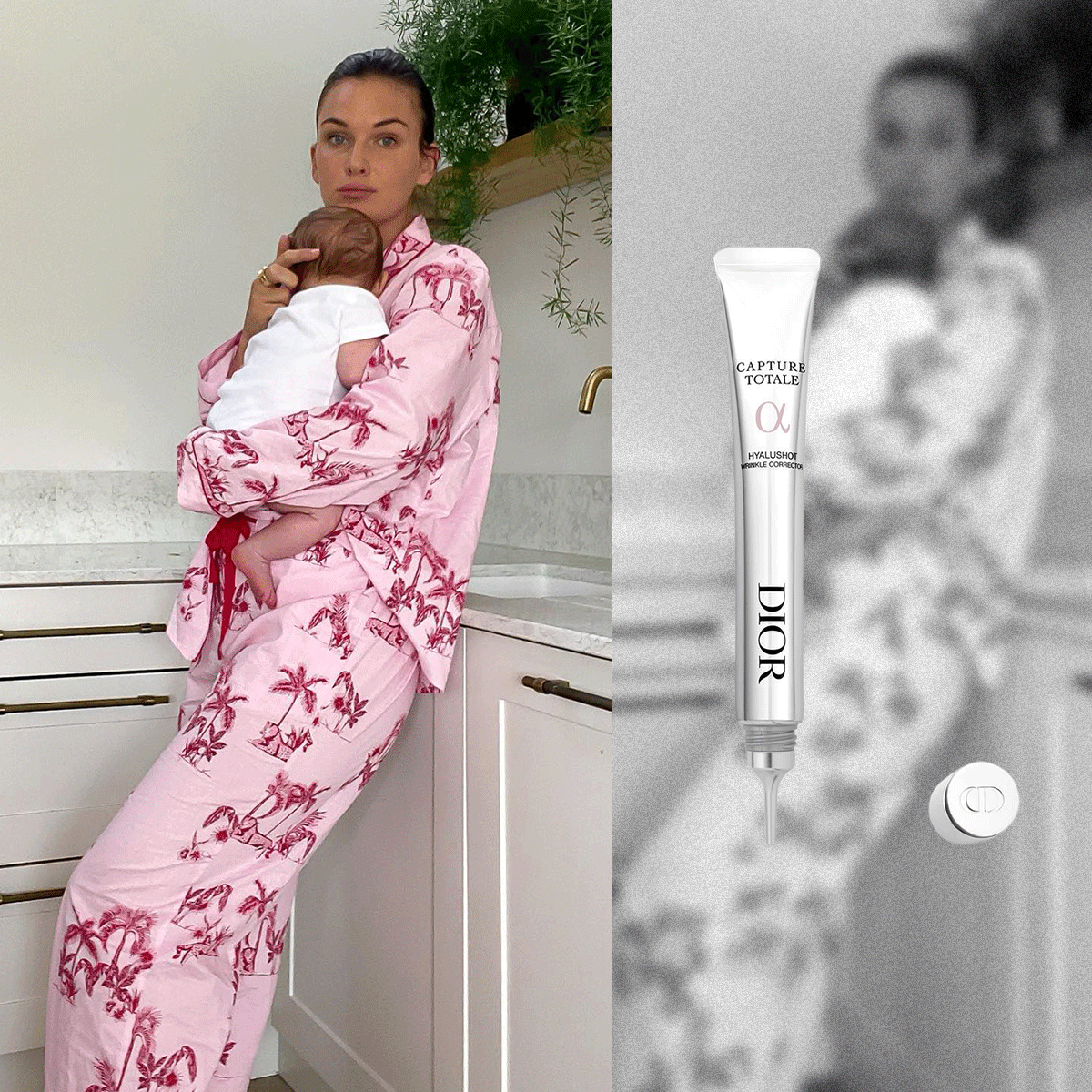The 10 Best Foods for Eye Health, According to an Ophthalmologist

It goes without saying that keeping your eyes healthy is necessary. You want to be able to see out of those peepers for your whole life. But now that we're glued to our screens 24/7, you might be wondering if there's more you can be doing to protect your eyeballs.
"What I tell every patient that I see as they're walking out the door is that there are three things that they can do every day to take care of their eyes, which is no smoking, eat a healthy diet, and wear sunglasses any time they're outside, even when it's cloudy, and that sounds like a trivial thing, but that is my parting wisdom to almost every patient I see," says Michelle Andreoli, MD, a clinical spokesperson for the American Academy of Ophthalmology (AAO).

When it comes to a healthy diet for your eyes, Andreoli splits it into two categories: "There are things in our diets that we can consume that help support cells and cell growth, and there are things that we can do in our diets as sort of a second branch to support the surface of the eye."
The first branch would be foods that are high in antioxidants, which can protect against cell damage. Andreoli says the second category is made up of foods that will help hydrate the eye. "When we think about the surface of the eye, lots of adults spend way too much time on our computers, reading or playing on our phones—and so what happens is it's very, very common to get a little bit of computer- and device-related dry eyes," Andreoli explains. "So for that second branch, what we encourage our patients do is to make sure they stay hydrated." Sure, that means drinking more water, but it also means consuming omega-3 fatty acids to fight dry eye.
Take a look at some foods that fall into these two branches below.
1. Blackberries
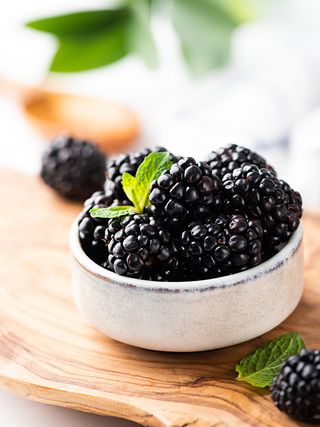
According to Oregon State University, blackberries have one of the highest antioxidant levels. They're rich in vitamin C and fiber.
2. Raspberries
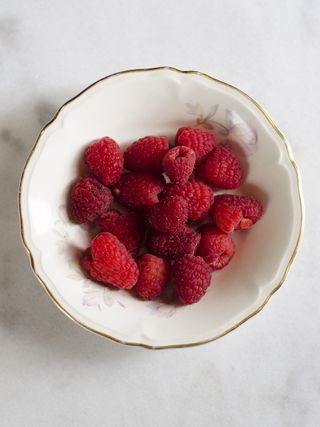
Raspberries are another berry that Andreoli suggested might promote eye health. In addition to antioxidants, raspberries also have anti-inflammatory properties.
3. Fish
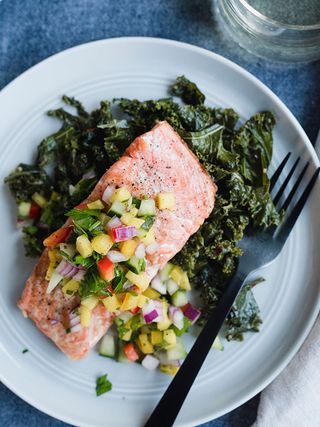
Gotta get those omega-3s. Fatty fish such as salmon, mackerel, sardines, and albacore tuna are high in omega-3s, but you can also take fish oil to supplement.
4. Carrots
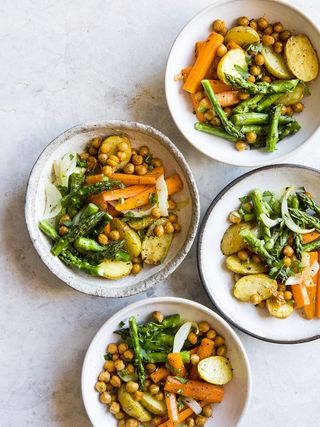
Your parents probably told you to eat more carrots if you wanted better eyesight—or was it just my parents? Either way, carrots and other orange fruits and vegetables such as sweet potatoes and apricots are great sources of vitamin A. According to the AAO, vitamin A helps your retina turn light rays into the images you see and also keeps your eyes hydrated.
You should consume vitamin A–rich foods, but don't worry about filling your plate with carrots. "For eye health, people talk a lot about carrots, and while you do need a certain amount of vitamin A for the structures in the back of the eye to be healthy, to live in the United States and have a deficiency would actually be pretty hard because there's vitamin A hidden in everything," Andreoli says.
5. Kale
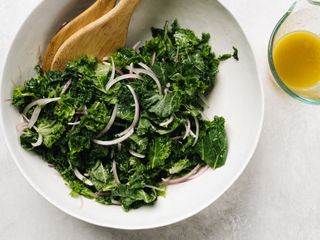
Leafy greens always top the list of healthy foods. Kale and spinach contain the antioxidants lutein and zeaxanthin, which the AAO says "are key to protecting the macula, the area of the eye that gives us our central, most detailed vision."
6. Beets
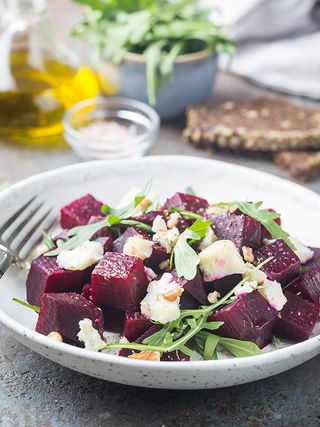
These can't be beat. (Sorry, I had to.) Beets contain betalains, another class of antioxidants that are beneficial to eye health.
7. Flax Oil
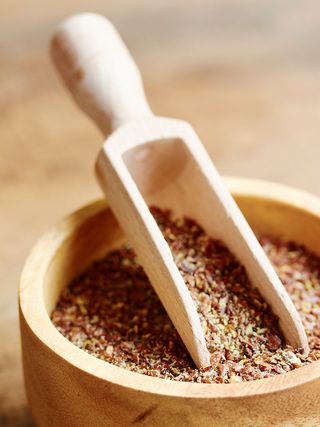
Packed with omega-3s, flax oil is a good option for vegetarians, Andreoli says. "The addition of these oils will help protect against the dry eye that comes with so much time on our devices and reading," she explains.
8. Oranges
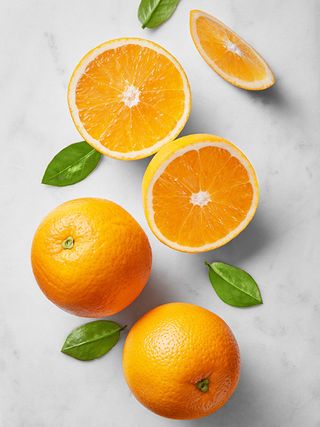
Oranges and other citrus fruits like grapefruit and lemons are good sources of vitamin C, which is also an antioxidant. The AAO states that antioxidants can help prevent or delay age-related macular degeneration and cataracts.
9. Sunflower Seeds
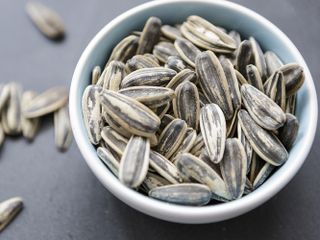
The AAO recommends another antioxidant, vitamin E, for eye health. Avocados, almonds, and sunflower seeds contain high levels of this vitamin.
10. Beans
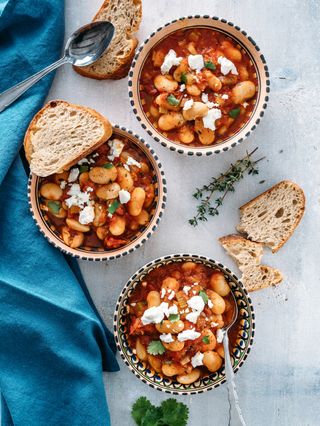
Beans have all kinds of health benefits, but when it comes to the eyes, the zinc they contain, according to the AAO, can keep your retina healthy and protect against the damaging effects of light.
Other Tips for Eye Health
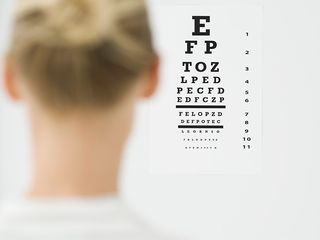
While these foods won't be able to reverse eye damage or conditions, Andreoli says that there is one disease that a change in diet can help: macular degeneration. "It's typically a disease in seniors," she explains. "If you have macular degeneration, there's a very specific vitamin cocktail that has been shown to slow the rate of progression of macular degeneration. It actually does slow it down." The specific vitamin combination is known as AREDS 2, but Andreoli says you can't take it to prevent the disease; it only works to slow the disease.
In addition to adhering to a healthy diet and wearing sunglasses to protect your eyes, Andreoli really wanted to stress the no-smoking guideline: "Smoking is bad for a lot of things. The structures of your eye are fairly forgiving to a certain point, but if you expose them to enough toxicity from the sun and from smoking over the course of life, it's really not that great."
Next up: An Ophthalmologist Shares the Best Vitamins for Eye Health
This article was originally published at an earlier date and has since been updated.
Disclaimer
This article is provided for informational purposes only and is not intended to be used in the place of advice of your physician or other medical professionals. You should always consult with your doctor or healthcare provider first with any health-related questions.
Sarah is lifestyle writer and editor with over 10 years of experience covering health and wellness, interior design, food, beauty, and tech. Born and raised in Los Angeles, she attended New York University and lived in New York for 12 years before returning to L.A. in 2019. In addition to her work on THE/THIRTY and Who What Wear, she held editor roles at Apartment Therapy, Real Simple, House Beautiful, Elle Decor, and The Bump (sister site of The Knot). She has a passion for health and wellness, but she especially loves writing about mental health. Her self-care routine consists of five things: a good workout, “me” time on the regular, an intriguing book/podcast/playlist to unwind after a long day, naps, and decorating her home.
-
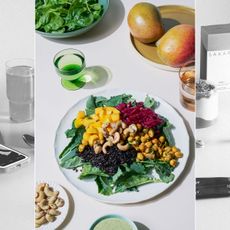 I Only Ate Sakara Life Meals for 30 Days—Here Are 7 Things That Happened
I Only Ate Sakara Life Meals for 30 Days—Here Are 7 Things That HappenedThe brand's 30-Day Fall Reset is finally here.
By Erin Jahns
-
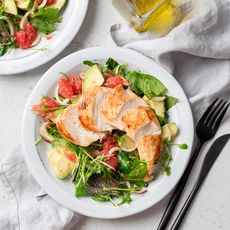 The 6 Warning Signs You're Not Getting Enough Protein
The 6 Warning Signs You're Not Getting Enough ProteinAnd what to eat to up your intake.
By Sarah Yang
-
 Everything This Professional Ballet Dancer Eats to Fuel Her For Performances
Everything This Professional Ballet Dancer Eats to Fuel Her For PerformancesHer grocery staples include high-quality French butter.
By Candice Aman
-
 These 8 Foods Are the Worst for Rosacea—Here's What to Eat Instead
These 8 Foods Are the Worst for Rosacea—Here's What to Eat InsteadControl those flare-ups.
By Sarah Yang
-
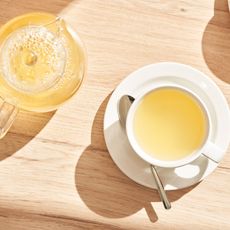 15 Things That Cause Bloating and How to Get Rid of It ASAP
15 Things That Cause Bloating and How to Get Rid of It ASAPTry these.
By Sarah Yang
-
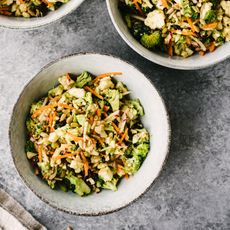 Is the Alkaline Diet Overhyped? What Experts Want You to Know
Is the Alkaline Diet Overhyped? What Experts Want You to KnowHere's how it works.
By Sarah Yang
-
 I'm an Imperfect Dietitian and My Key to Eating Healthy Meals Is Convenience
I'm an Imperfect Dietitian and My Key to Eating Healthy Meals Is ConvenienceTake a peek at my weekly grocery staples.
By Candice Aman
-
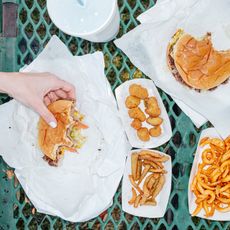 Avoid These 6 Foods—They'll Wreck Your Gut Health
Avoid These 6 Foods—They'll Wreck Your Gut HealthWhat to eat instead.
By Sarah Yang
